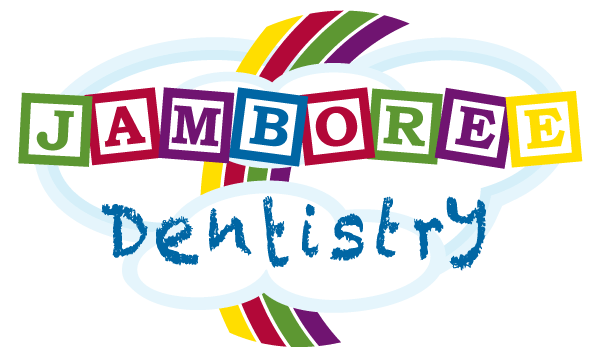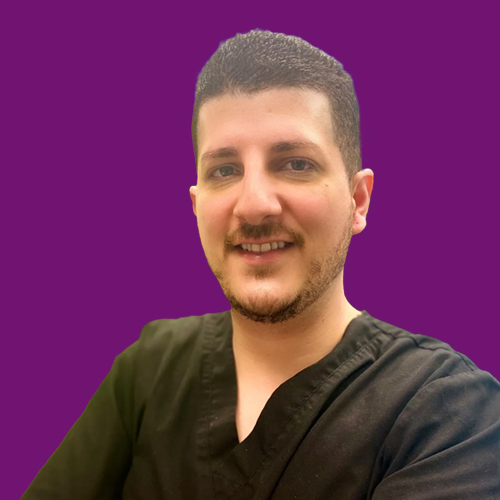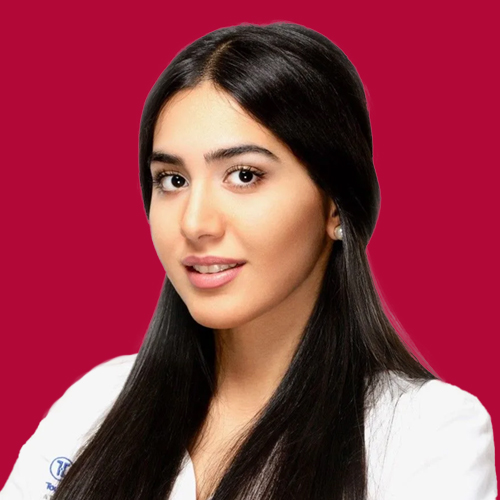Diet & Cavity
Diet & Cavity Questions
Jamboree Dentistry is a pediatric dentistry practice in Houston that provides care that meets today’s most demanding pediatric dentistry needs. Do you have questions regarding diet and cavity? Browse the Jamboree Dentistry diet and cavity questions here.
Fluoride is a well-known agent in the never-ending fight against tooth decay. With proper use, pediatric dentists have been able to greatly reduce the amount of cavities in children.
What is fluoride?
It is a naturally-occurring mineral. It can be found in water, soil and even some foods.
How does fluoride help improve oral health?
Our mouths are full of bacteria. When combined with sugar and carbohydrates from foods and liquids, it can produce an acid that harms your tooth enamel. Fluoride strengthens the structure of your children’s teeth to help protect them from this acid damage. It also creates a tooth surface with an improved ability to resist decay. Fluoride is also helpful in repairing, or remineralizing, areas where acid damage has already begun and can reverse the early signs of tooth decay.
How does my child get fluoride?
Fluoride actually occurs naturally in water. About 74 percent of the homes in America are also connected to public water systems which adjust fluoride to an optimal level for preventing tooth decay. In addition, fluoride is contained in most toothpastes and mouth rinses. Dental professionals may apply fluoride in the form of a gel or foam as needed.
How do I know if my child is getting enough fluoride?
The American Academy of Pediatric Dentistry recommends that you have your pediatric dentist evaluate the fluoride level of your child’s primary source of drinking water. If your child is not getting enough fluoride internally through water, especially if the fluoride level is deficient or if your child drinks bottled water without fluoride, we may then prescribe fluoride supplements.
Jamboree Dentistry, being one of the most premier medicaid pediatric dentists Houston has to offer, encourages parents to be knowledgeable of their children’s oral health and is always willing to educate!
Yes! Your child’s diet can absolutely affect their dental health. A healthy diet allows teeth to develop as they should as well as reinforces healthy gums and healthy teeth for a solid dental foundation which follows into adulthood. An unhealthy diet increases the probability of tooth decay and impedes the development of teeth.
A Healthy Diet Prevents Cavities
Keeping your child’s teeth healthy is important, and this means you need to ensure your child eats a healthy diet. Your child should have a daily diet that includes all major food groups. It is important that your child receives a naturally balanced diet that includes the important nutrients your child needs in order to grow.
An Unhealthy Diet Fosters Cavities
Every time someone eats, an acid reaction occurs inside their mouth as the bacteria digests the sugars. This reaction lasts approximately 20 minutes. During this time, the acid environment can destroy the tooth structure, eventually leading to cavities. The consistency of a person’s saliva also makes a difference. Thinner saliva breaks up and washes away food more quickly. When a person eats diets high in carbohydrates and sugars they tend to have thicker saliva, which in turn more of the acid-producing bacteria that causes cavities.
Analyze the frequency in which starch-based foods are eaten. These types of foods include bread, pasta, potato chips, etc. Most of the time, cavities are due to a diet high in sugary foods. All types of sugars can promote tooth decay. Sugar is found in more than just candy. For example, most milk-based products contain sugar.
Maintain a Lifetime of Healthy Teeth
Encouraging proper brushing and flossing at home, along with regular dental visits and a balanced diet, will help give your child a lifetime of good dental health. Preventive treatments including cleaning and fluoride treatments, as well as diet and nutrition recommendations. Jamboree Dentistry has the tools you need to keep your child’s teeth clean and healthy. Contact us today for quality pediatric dentistry in Houston.
No. You should not eliminate all sugar and starch from your child’s diet. Sugars and starches are actually very important for your child’s overall health.
Healthy Sugars and Starches in a Child’s Diet
Starches and sugars should be eaten with an entire meal. Keeping a balanced diet is important to your child’s growth and development. Your child’s diet is an important part of maintaining proper dental care. Know that any foods that stick to teeth are also more difficult to wash away with water, saliva, or other drinks. Provide your child the right foods, and talk to your child about choosing and maintaining a healthy diet.
A. As we stated earlier, initiate a balanced diet. Analyze the frequency in which starch-based foods are eaten. These types of foods include bread, pasta, potato chips, etc. In addition, sugar is found in more than just candy. All types of sugars can promote tooth decay. For example, most milk-based products contain sugar. A Peanut butter and jelly sandwich is a favorite for bag lunches. Unfortunately, it includes sugar not only in the jelly but also in the peanut butter. For less sugar and more flavor and nutrients, try replacing jelly with fresh fruit slices (apples, pears, or bananas) or chopped dried fruit. Go easy on the peanut butter, though—it’s high in fat. Choose the “no-salt-added” kind for less sodium.
It is as important to keep an infant’s mouth as thoroughly clean as it is for adult teeth. Consuming any sugars will cause tooth decay that can affect future teeth.
Keeping Infant Teeth Clean is Important
Our primary recommendation is to not feed your infant food or any drink besides water before they go to sleep. Do not nurse your children to sleep. Likewise do not put your children to bed with any milk, juice, or formula.
Do Not Nurse Children to Sleep
Know that any liquid that remains in the mouth when a child is sleeping can create bacteria that can harm future teeth. Sleeping with a pacifier or a bottle that’s filled with pure water is OK for maintaining healthy teeth.
Avoid Tooth Decay with Jamboree Dentistry
When your child is ready, regularly scheduled dental cleanings and checkups are best for your child’s dental health. Jamboree Dentistry provides pediatric dentistry in Houston. Our staff provide the thorough and caring dental checkups and cleanings that children need to have their healthiest teeth.
It’s recommended that you take your child to the pediatric dentist by the time he has his first birthday. However, once your child starts going to the dentist, you may be wondering how often your child needs to see the dentist.
Recommended Dentist Visits
In general, it’s recommended that you take your child to the pediatric dentist every six months. Bi-annual visits help to ensure that cavities and other types of dental problems are prevented or caught before they become more serious dental or health issues. Your child should never go more than six months without visiting the dentist.
Every Child is Different
While you should follow the general guidelines for taking your child to the dentist, you also need to realize that every child is different. Your child has unique dental needs, and some needs may require more attention. For example, a child that is showing signs of orthodontic problems may require more frequent visits. Talk to your pediatric dentist about your child’s dental care. In some cases, your dentist may recommend that your child come in for checkups more frequently.
Between Dental Visits
No matter how often your pediatric dentist feels your child should have checkups, it’s important that you take care of your child’s oral health between those appointments. Monitor your child’s oral care habits, ensuring that your child is brushing each day. This is especially important for children under the age of five. Good oral hygiene will help to prevent many dental problems, so always make sure your child is following good oral hygiene practices each day. If you’re unsure about your child’s oral care, you can always ask your pediatric dentist for suggestions on how you can better care for your child’s teeth and gums.
During Dental Checkups
When your child visits the dentist for routine checkups, you can expect the dentist to do a thorough evaluation of your child’s oral health. These bi-annual visits are usually the time when any problems, such as oral decay, cavities, or irregular growth patterns are found. This means that these appointments are extremely important, so always make sure that you follow through with your child’s pediatric dentistry in Houston, or anywhere else!
Meet Our Doctors
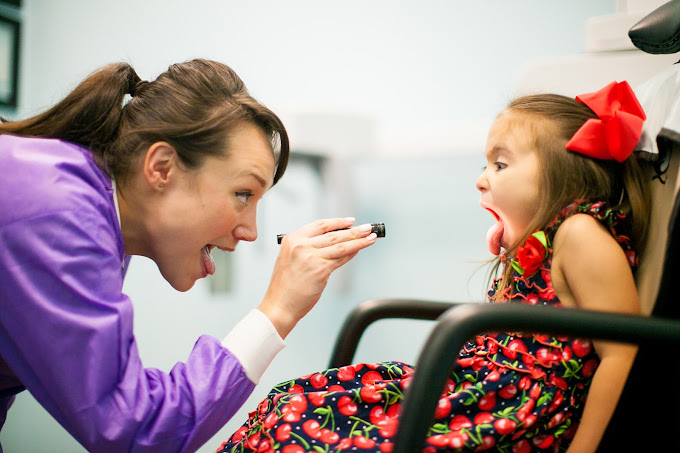
We Love Hearing From Our Patients
Testimonials
Positive Feedback & Testimonials
5 Amazing Locations in Houston, TX

North Freeway Office
Phone
Address
Hours
- Mon-Thurs: 9 AM - 6 PM Fri-Sat: 9 AM - 3 PM
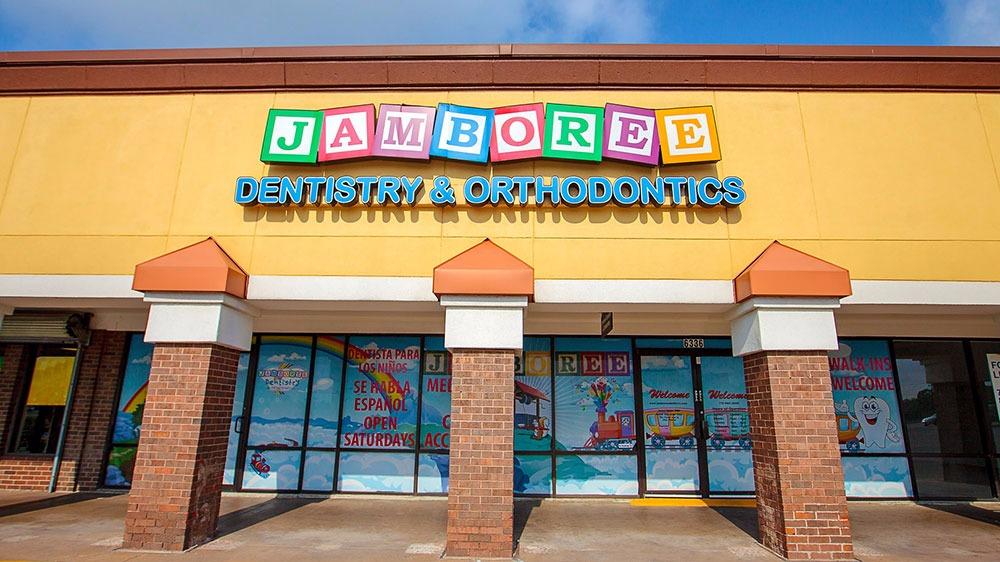
Telephone Rd Office
Phone
Address
Hours
- Mon-Thurs: 9 AM - 6 PM Fri-Sat: 9 AM - 3 PM

Willow Chase Office
Phone
Address
Hours
- Mon-Thurs: 9 AM - 6 PM Fri-Sat: 9 AM - 3 PM

FM 1960 Office
Phone
Address
Hours
- Mon-Thurs: 9 AM - 6 PM Fri-Sat: 9 AM - 3 PM

Bissonnet Office
Phone
Address
Hours
- Mon-Thurs: 9 AM - 6 PM Fri-Sat: 9 AM - 3 PM
